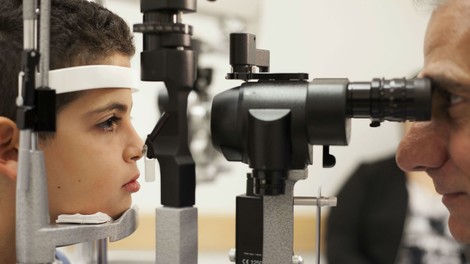Your podcast discovery platform
Curious minds select the most fascinating podcasts from around the world. Discover hand-piqd audio recommendations on your favorite topics.

piqer for: Global finds Health and Sanity Doing Good
Bangalore-based Rashmi Vasudeva's journalism has appeared in many Indian and international publications over the past decade. A features writer with over nine years of experience heading a health and fitness supplement in a mainstream Indian newspaper, her niche areas include health, wellness, fitness, food, nutrition and Indian classical Arts.
Her articles have appeared in various publications including Mint-Wall Street Journal, The Hindu, Deccan Herald (mainstream South Indian newspaper), Smart Life (Health magazine from the Malayala Manorama Group of publications), YourStory (India's media technology platform for entrepreneurs), Avantika (a noir arts and theatre magazine), ZDF (a German public broadcasting company) and others.
In 2006, she was awarded the British Print-Chevening scholarship to pursue a short-term course in new-age journalism at the University of Westminster, U.K. With a double Masters in Globalisation and Media Studies from Aarhus Universitet (Denmark), University of Amsterdam and Swansea University in Wales, U.K., she has also dabbled in academics, travel writing and socio-cultural studies. Mother to a frisky toddler, she hums 'wheels on the bus' while working and keeps a beady eye on the aforementioned toddler's antics.
3D Printing Might Soon Gift Sight To Millions
3D printing has made some questionable stuff possible: for instance guitars, working guns and model foetuses. But it looks like 3D printing is finally coming of age, and in a good way.
More than 15 million people worldwide are in dire need of corneas, the outermost front layer of our eyes. Once a cornea is damaged, either due to disease or injury, the only solution at present is a cornea transplant. And donors are hard to come by. According to statistics published by the University of Iowa, around 44,000 corneal transplants are done every year. Evidently, the supply is far less than the demand.
But 3D printing could give the gift of sight to these millions soon. Scientists from Newcastle University have recently developed what they term ‘bio-ink’. Using this, they could successfully 3D print corneas.
The team of researchers had to figure out a way to make this ‘bio-ink’ stiff yet soft (so that it holds the shape and yet can be squeezed out of the nozzle of a 3D printer). They achieved this by using a combination of alginate and collagen. Once the ink was ready, they used the scan of a person’s eye to measure the cornea’s dimensions and printed the cornea in an ordinary 3D printer!
Once it was printed, stem cells were allowed to grow around the ‘boundary’ provided by alginate and collagen. The good news was more than 80 per cent of cornea cells were alive a week after printing, indicating that with further research and development, these could indeed replace human corneas.
The caveat of course is precisely that further research is needed to ensure that these corneas can do all the work that a ‘real’ cornea does. Scientists are also yet to test it on living organisms. But the positive implications of this development are huge. A genuine game changer, if 3D-printed corneas are successful, they have the potential to dramatically transform millions of lives for the better.
Stay up to date – with a newsletter from your channel on Doing Good.
